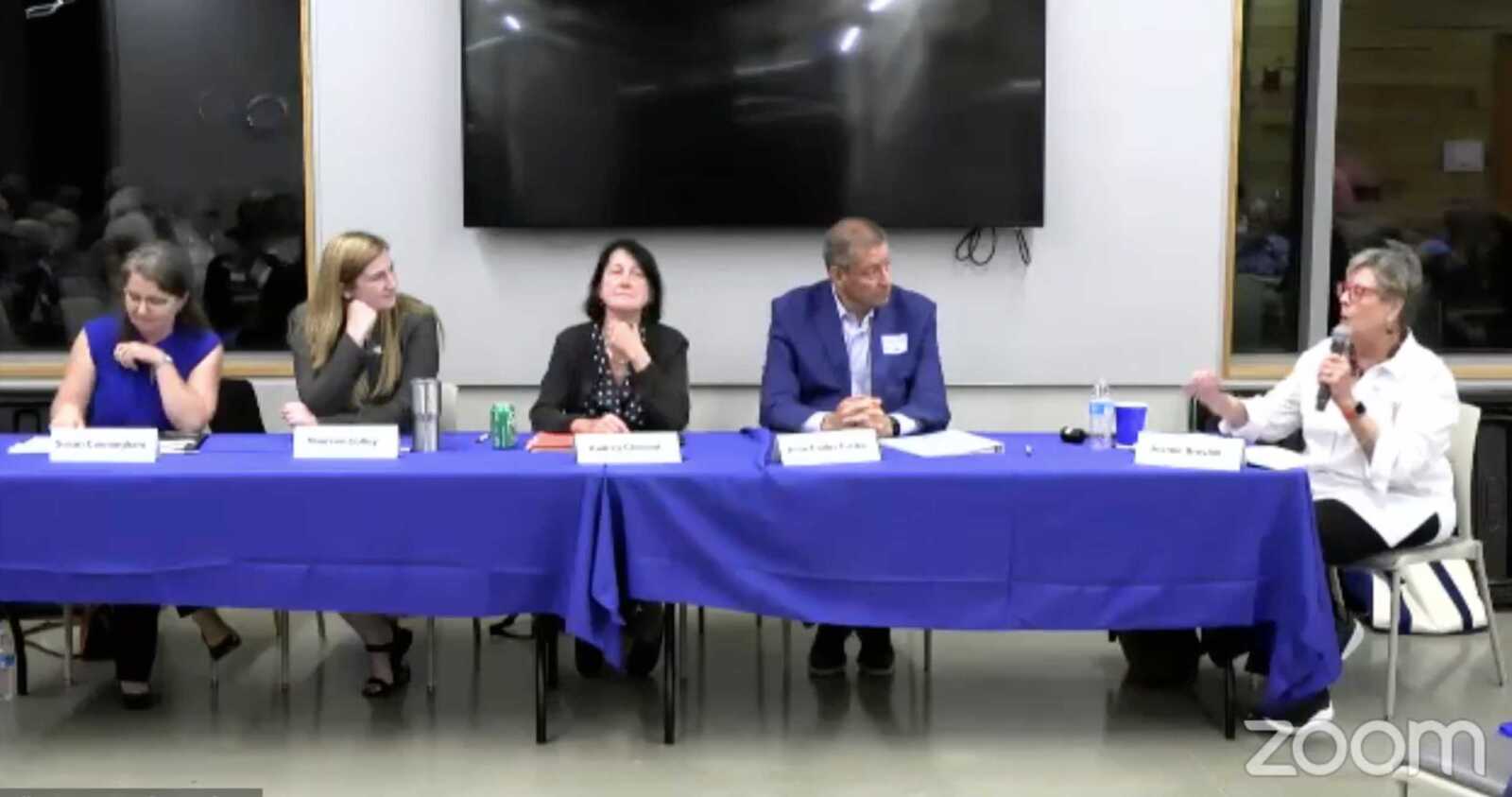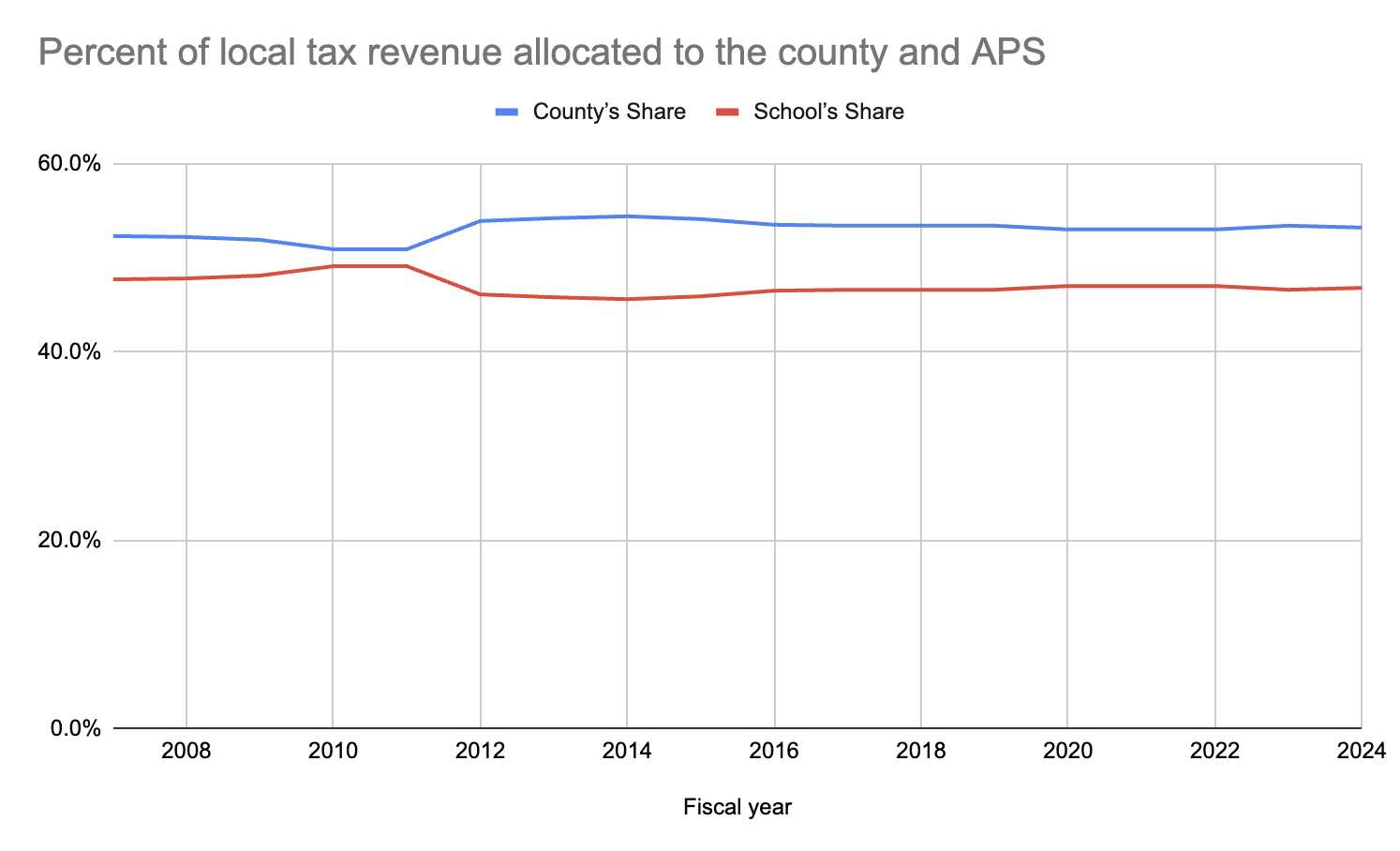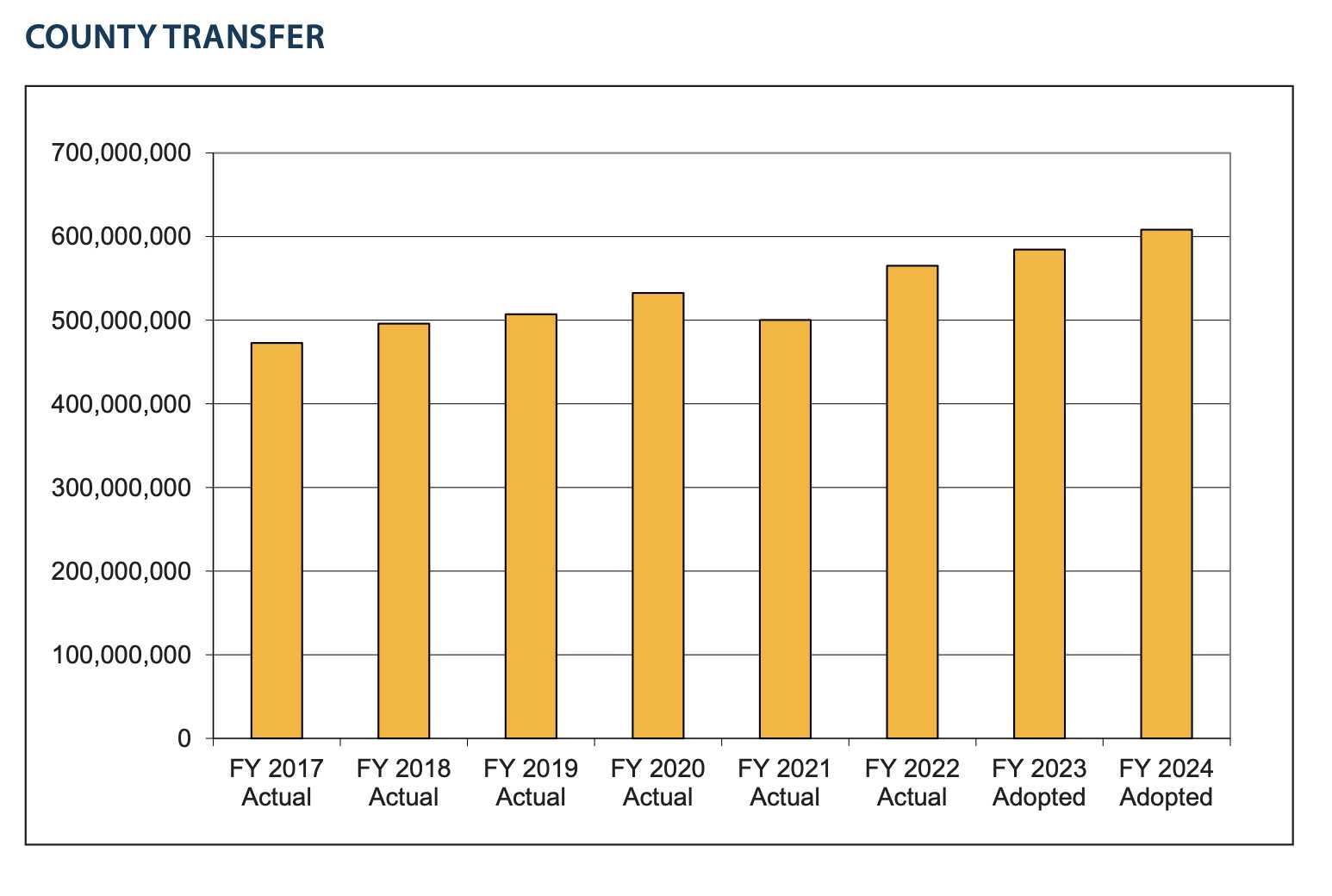
Arlington County Board candidates say they would like more coordination and transparency from the School Board when it comes to annual budgets and long-term plans.
The discussion arose last night (Wednesday) during an Arlington Committee of 100 candidate forum.
Candidates were asked if they support increasing the share of tax revenue the county transfers to Arlington Public Schools to, among other reasons, further tackle Covid-era learning loss. They were also asked how they would promote sustainable growth in Arlington County with an eye toward how that impacts the school system.
In their responses, Democratic candidates Maureen Coffey and Susan Cunningham hinted at closer scrutiny of the budget but pointed to a different issue they would to address: county-school coordination. Independent Audrey Clement and Republican Juan Carlos Fierro, meanwhile, said it may be time to revisit how much money the schools receive.
Every year, the county transfers money to APS, which it uses to fund most — around 75-79% — of its annual budget. The percent of revenue shared has remained fairly constant in the last two decades.

The dollar amount transferred, however, has risen steadily in the last three budgets after more modest upticks between 2017 and 2020.

Given the recent increases, Fierro says it is time to study the county’s revenue share to APS, which currently sits at 46.8%.
“That, plus the allowance we have to give to Metro, is a lot for Arlington County,” he said. “We have to find a way to study how we can try to lower that amount, but of course, the quality has to be the same.”
Fierro contrasted the rising contributions to APS with the county’s budget surplus, suggesting residents may be over-taxed. At the close of each fiscal year, the county puts surplus, or “closeout funds,” toward a variety of expenses, a practice that has its critics, who say it should instead help stave off tax increases.
“It’s a lot of money,” he said. “One of my radical ideas is that this money goes back to taxpayers. We’re living in challenging times.”
Clement said she agreed.
“We are really imposing a huge tax burden on our residents,” she said. “I believe it is unsustainable because it’s over twice the rate of inflation and I think we ought to look at ways to streamline our budget, not ways to increase it.”
Clement further argued against increasing the budget for APS, citing falling enrollment projections over the next decade.
“I understand that the greatest problem facing our schools is the achievement gap, which grew significantly during Covid,” she said. “I don’t think throwing more money at that particular problem is going to solve it.”
Coffey and Cunningham were modest in their suggestions to review county transfers to APS but said they were open to that conversation.
Like Clement, they said the main issue county leaders need to address regarding the school system is poor coordination. They argued this can lead to redundant spending and service gaps.
“We really do need to fund our schools. I think that that starts with improving the relationship with the County Board and School Board,” Coffey said. “Having more of that collaborative mindset is going to be very important so that we’re not just unnecessarily raising taxes.”
She said these conversations could avoid situations where the county and school compete for new therapists and psychologists when they could instead hire staff who float between county programs and school buildings.
Cunningham said she is “absolutely open to moving those numbers around, gently, over time… [but] we need to focus on the outcomes and the results, not just on the numbers.”
That requires “a bit more of a conversation and transparency with our school leadership about where we’re investing this year,” she continued.
Both Democrats said coordination is a long-standing issue. Coffey noted schools are not even a part of Arlington County’s comprehensive plan.
“We have never been all that good at getting schools and county to really, truly, fully be integrated in our thinking,” Cunningham said.

